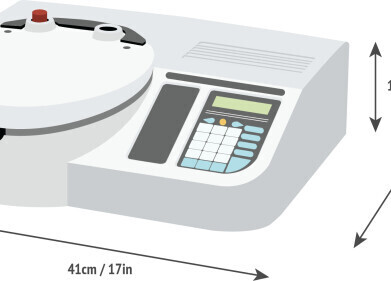Chromatography
How Long Can a Person Live?
May 12 2017
In the 1900s, global life expectancy was a dismal 31. In 1950, the world average was pushed up to 48, and by 1990 it was almost 72 years. Now it’s even higher, with the average Brit expected to live to at least 81 years.
Think that sounds old? Earlier this year, an Indonesian man called Mbah Gotho passed away at a wildly impressive 145 years old. Unsurprisingly, his claim sparked its fair share of controversy, and raised the question of whether it’s scientifically possible to live to the age of 146.
The illusive ‘upper ceiling’
Of course, scepticism is justified. Just last year a high profile study claimed that the natural human lifespan is limited by an upper ceiling. The team drew on data from the International Database of Longevity, which revealed that age appeared to plateau in the mid 1990s, when the oldest people on the planet had clocked up around 114.9 years. As the figure has started to slowly decline since then, scientists concluded that the human body is physically incapable of surviving past the 115 year mark.
Jan Vijg, a geneticist at New York’s Albert Einstein College of Medicine explains, “We simply provided evidence that humans do indeed have a ceiling that they really cannot go beyond. That’s part of being human.”
Of course, there is always the occasional outlier. According to data, French supercentenarian Jeanne Calment reigns as the world’s oldest woman. She died at the age of 122 in 1997, though Vijg maintains that most people have a much shorter shelf life.
As for his views on Mbah Gotho… “If somebody told you that they saw a UFO yesterday but it’s gone now, you’d probably be polite, but you wouldn’t believe it,” he theorises. “That’s my reaction with this story.”
Beating the genetic clock
While experts doubt that extreme natural longevity is a possibility, they are open to the idea that this could change. If lifespans are ruled by genetic clocks, it could technically be possible to live well past the age of 100. Richard Faragher, professor of biogerontology at the University of Brighton takes a hypothetical approach, asking “How long can a human live if you don’t do anything to them? Probably around 120. But there is a separate question, how long do people last if you can do something to them?”
He’s referring to the possibility targeting the process of ageing itself, which involves halting the genetic clock that actively causes cells and organs to deteriorate.
Thanks to new technologies, the health care and life sciences sphere is continually advancing. For a closer look, ‘Capillary Isoelectric Focusing – A Comparison of Different Carrier Ampholytes for Monoclonal Antibody Charge Heterogeneity Analysis’ spotlights exciting new developments within the biopharmaceutical industry.
Digital Edition
Lab Asia Dec 2025
December 2025
Chromatography Articles- Cutting-edge sample preparation tools help laboratories to stay ahead of the curveMass Spectrometry & Spectroscopy Articles- Unlocking the complexity of metabolomics: Pushi...
View all digital editions
Events
Jan 21 2026 Tokyo, Japan
Jan 28 2026 Tokyo, Japan
Jan 29 2026 New Delhi, India
Feb 07 2026 Boston, MA, USA
Asia Pharma Expo/Asia Lab Expo
Feb 12 2026 Dhaka, Bangladesh



















